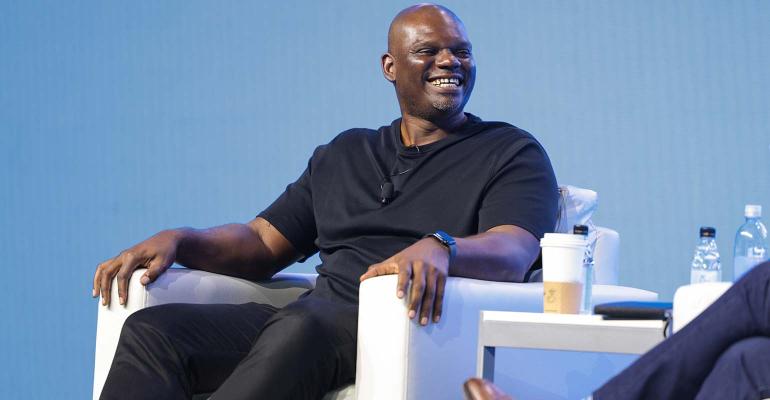Financial advisors often want to ignore the next generation of investors because many of them don’t have money yet. Former NBA star Jamal Mashburn experienced just that when trying to choose an advisor as a 19-year-old just about to turn pro. He interviewed three business managers at the time.
“A lot of those guys came into the room and just had their spiel, and never took the time to really understand from a 19-year-old kid what he actually wanted,” Mashburn said, speaking at the Wealth Management EDGE conference at The Diplomat Beach Resort in Hollywood Beach, Fla. this week.
But one advisor stood out from the crowd.
“There was one gentleman that actually listened to what I wanted,” Mashburn said. “I said I wanted to step into a live active business when I finish my first contract.”
He had another caveat: “I said, ‘You got to teach me everything you know about finance,’ and I hired him on the spot.”
A year later, he started his first investment with Outback Steakhouse—with that advisor’s help. Now, he owns Papa John’s and Dunkin’ Donuts franchises, as well as Lexus and Toyota dealerships, and has built an operating company around those verticals.
Mashburn, who played 12 seasons in the NBA for such teams as the Dallas Mavericks and Miami Heat, was a prolific scorer as a small forward, averaging 19.1 points per game.
From a young age, Mashburn knew he wanted to be a business man. He was born and raised in the projects of Harlem in New York City. His parents divorced when he was just 10 years old, so his mother became his sole provider.
“My mother challenged me at an early age, ‘What do you want to do? We don’t have money for you to go to college. You’re going to have to get scholarship either in arts, sports or academics,’” he said. “I chose the sports route.”
For high school, he had to take the train to downtown Manhattan.
“I was seeing people who pretty much looked like you guys, with suits and a briefcase, and I was always curious what was in the briefcase,” he said.
He later found out there wasn’t much in those briefcases, but it carried a larger significance.
“What it signaled for me was utilization of my brain; I looked at the briefcase as my brain, essentially,” he said. “Basketball was the catalyst for me to carry a briefcase.”
A lot of folks along the way would laugh in his face and tell him that dream wasn’t really possible.
But that advisor, with whom he still has a relationship to this day, wasn’t one of them.
“I often put people in the position to reveal themselves. Trust for me is built over time,” he said.
A lot of financial services providers, Mashburn said, have no intention of helping athletes learn about investments and finance. “It’s pretty much coddle along and make fees on them.”
It’s sounds simple, but Mashburn stressed the importance of advisors who teach athlete clients how to do things on their own and listen to what the athlete wants and desires. An advisor has to act somewhat as a psychologist to figure that out.
“There’s a saying in the locker room that, ‘when a person wakes up, you want to be their best friend, not their enemy,’” he said. “That happens oftentimes when an athlete, as they get to the end of their career and retirement, they’ve been woken up because they’ve had financial issues. They’re forced to wake up. Either you can be that person that’s helped them along the way, that gives them information or you can be the person they go after for not giving them the information.”
Mashburn now tells young athletes that it’s not about how much money you get, but what you’re going to do with that money when you get it. There should be a focus on taxes, cost of living, saving and investing.
“To me, it shouldn’t be a transactional relationship; it should be a transitional relationship,” he said.





